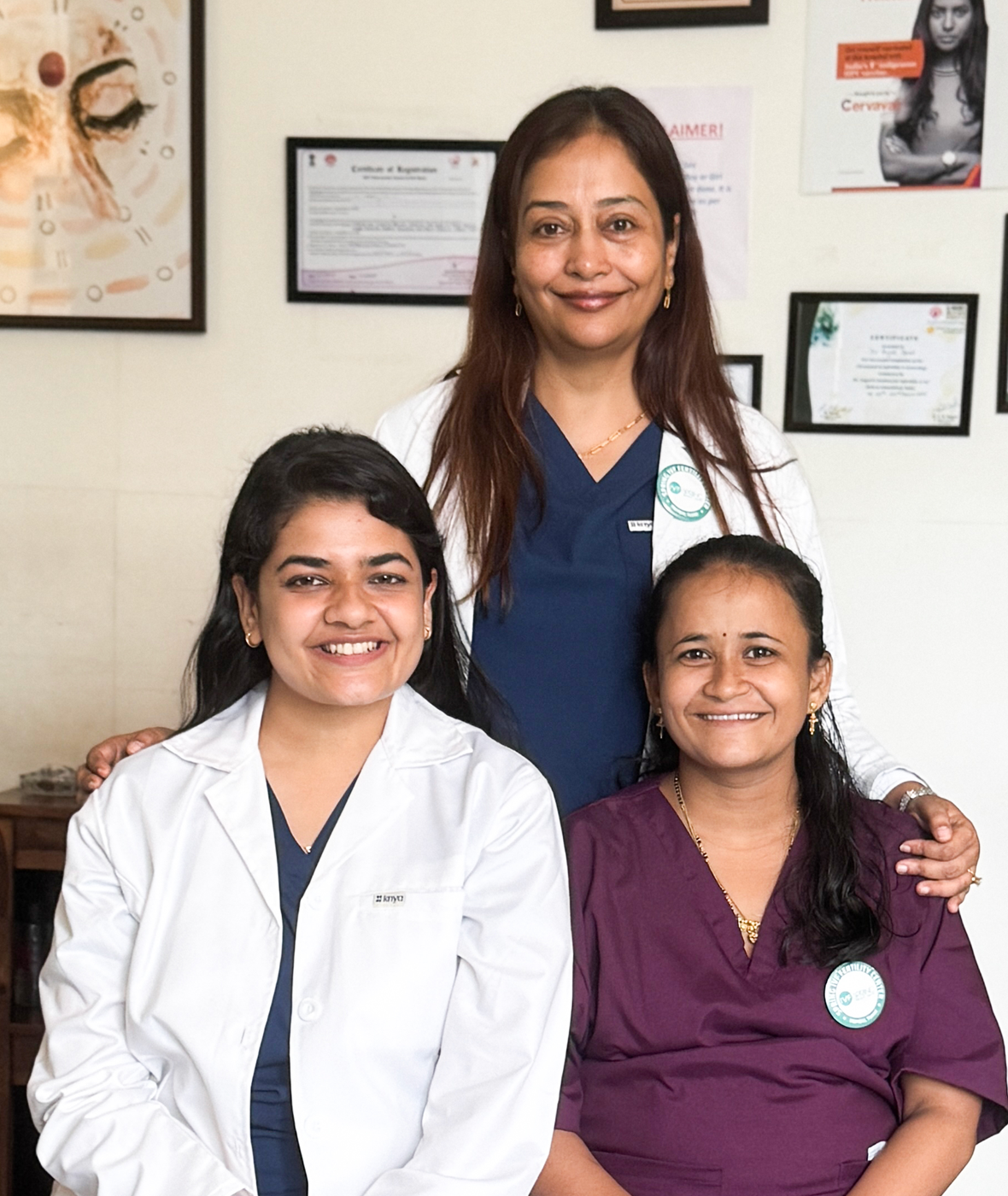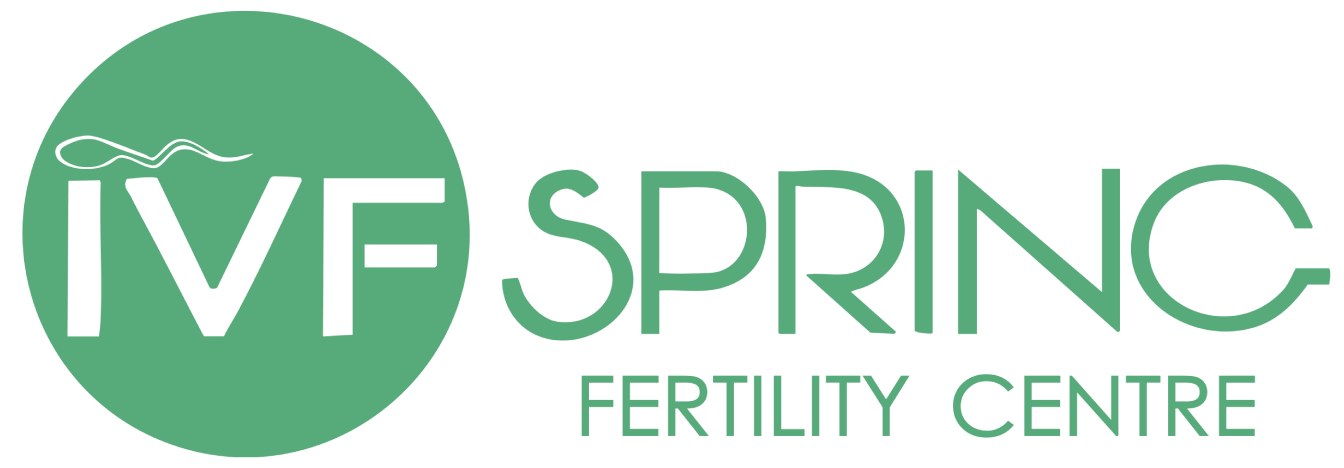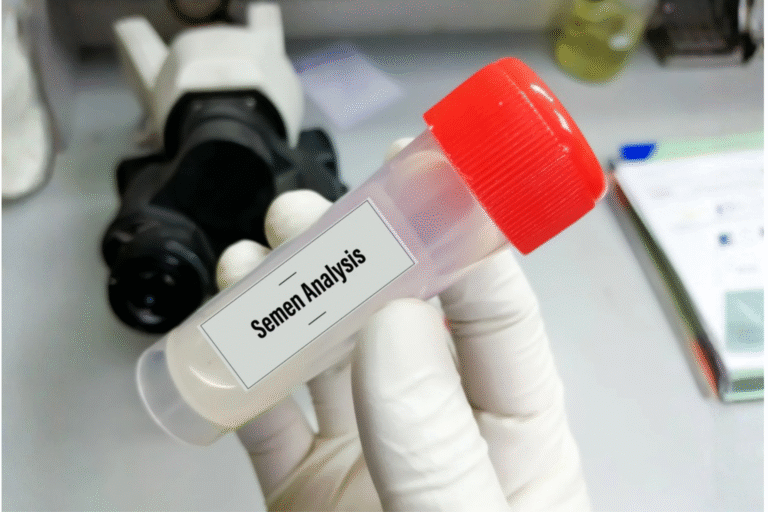Your first fertility consult may be overwhelming, but it doesn’t have to be. Here’s a guide to understand what you can expect.
Walking into a fertility clinic makes it real. You're no longer "just trying"—you're officially someone who needs help getting pregnant. That shift can hit hard. You might cry. You might feel relieved. You might feel angry that you're here at all. You might feel hope for the first time in months. All of this is okay. If you find yourself overwhelmed, tell your care team. Good clinics have counselors or can refer you to therapists who specialize in fertility issues.
You’ve made the call. You’ve scheduled the appointment. And now you’re sitting there wondering: What have I just signed up for?
If you’re feeling a mix of hope, dread, and about seventeen different kinds of anxiety, you’re completely normal. The first fertility appointment feels massive—like walking into a room where your future might be decided. Let me tell you right now: it’s not that dramatic. But it is important, and knowing what to expect can transform that anxiety into something more useful: preparation.
What's Actually Going to Happen
Your first fertility appointment is basically a very thorough conversation with some tests thrown in. That’s it. You’re not walking into a judgment chamber.
Here’s the typical flow:
The paperwork phase: Medical history, menstrual cycle details, sexual history, previous pregnancies, medications, and family health history. Do this online beforehand if your clinic offers it—you’ll save time.
The conversation: Your doctor will ask detailed questions about how long you’ve been trying, your menstrual cycle (length, regularity, pain), any previous pregnancies or losses, your partner’s health, lifestyle factors, and your sex life. Yes, it might feel intrusive. It’s supposed to be thorough.
The physical exam: You’ll have a pelvic exam with a transvaginal ultrasound—an internal ultrasound that gives a clear view of your ovaries and uterus. Yes, it’s awkward. No, it doesn’t hurt (though it might be uncomfortable).
Initial testing: Blood tests to check hormone levels including AMH (which gives us an idea of your egg count), FSH, LH, estradiol, and sometimes thyroid function.
The discussion: Your doctor will discuss initial findings and outline next steps—what additional tests you might need, treatment options, and your timeline.
Your first visit typically takes about two hours in person, or about one hour for telehealth.

What to Bring (The Actual Practical List)
Documents:
- Previous medical records (especially fertility-related)
- Results from any tests you’ve already done
- List of current medications, vitamins, and supplements
- Surgical records related to reproductive health
Information to Have Ready:
- Your trying-to-conceive timeline (be specific—”18 months” not “over a year”)
- Cycle details: average length, first day of last period, irregularities
- Pregnancy history including miscarriages, terminations, ectopic pregnancies—everything, no judgment
- Your partner’s medical history: surgeries, medications, family history
The Less Obvious Stuff:
- A notebook and pen (you’ll forget half of what you hear otherwise)
- Your questions written down
- Your partner (if applicable)—fertility isn’t just a “woman’s issue”
- A fully charged phone
The Lesser-Known Thing: Bring Your Partner's History Too
Here’s what most people don’t realize: infertility is not solely a female issue; male factors play an equal role.
Roughly one-third of fertility issues are male-factor, one-third are female-factor, and one-third are a combination or unexplained. Don’t waste time and money testing only one partner when both need evaluation from the start.
If you have a male partner, bring information about his health history: surgeries (especially hernia repairs, varicocele, testicular trauma), medications, family history of fertility issues, previous children, and any known reproductive concerns.

Questions You Should Actually Ask
If you have any questions, ask them. This is your fertility and your treatment. Here are some things you should know:
- What specific tests do you recommend for my situation, and why?
- When will I get the results?
- Based on what you know so far, what might be causing our fertility challenges?
- What would be the first-line treatment for someone in my situation?
- What are the success rates for that treatment in my age group?
- If that doesn’t work, what’s next?
- How many monitoring appointments will treatment require?
- Who do I contact with questions between appointments?
- What are the costs, and what does insurance cover?
Don’t be shy about asking about costs. Fertility treatment can be expensive, and you have a right to know what you’re getting into financially.
What Tests Might Come Next
After your initial appointment, you might be scheduled for:
HSG (Hysterosalpingogram): An X-ray test where dye is injected through your cervix to see if your fallopian tubes are open. Done in the first half of your cycle. It’s uncomfortable but quick—about 10 minutes.
Semen analysis: Your partner provides a sample to check sperm count, movement, and shape. This is the single most important test for male fertility and should be done early, not as an afterthought.
More detailed hormone testing: Additional blood tests on specific days of your cycle, depending on initial results.
Genetic carrier screening: To check if you or your partner carry genes for conditions like cystic fibrosis, sickle cell disease, or thalassemia.
In some cases, especially if you have had treatment before, the doctor may even recommend starting your next treatment immediately!

The real bottom line and how Spring Fertility can help
Your first fertility appointment isn’t a verdict on your fertility or your future. It is just an information gathering session. It’s the start of your journey.
You’ll leave with more questions answered, probably some new questions you hadn’t thought of, and a plan for next steps. That plan might be simple or more complex. Either way, you’ll have direction.
And here’s the thing about taking this first step: it means you’re done waiting and wondering. You’re doing something. That alone can be powerful.
If you’ve been trying to conceive without success, or if you have concerns about your fertility, don’t let uncertainty keep you waiting. Our team is here to listen, investigate, and create a personalized plan for your unique situation.
Book your first consultation today. Come with your questions, your concerns, and your hope. We’ll handle the rest.
Because every fertility journey starts with a single appointment—and you’ve already done the hardest part by deciding to make the call.









